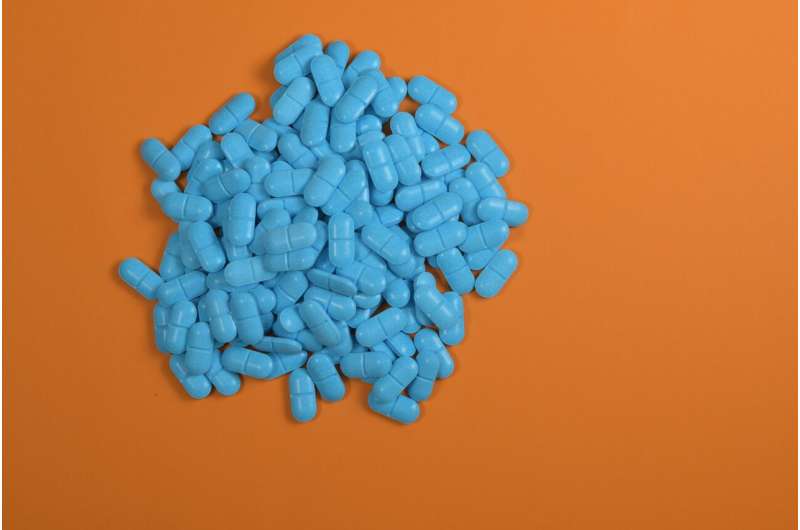The Rise of Beta Blockers in Hollywood: Why Celebrities Are Using Them

Celebrities are turning to propranolol, a heart medication, to manage anxiety during high-stakes events. Learn how these beta blockers work and their role in Hollywood's red carpet secrets.
A small blue pill is causing a buzz in the celebrity world—and it's not Viagra. The drug in question is propranolol, a type of beta blocker initially created to treat heart-related conditions. Recently, this medication has become popular among actors, musicians, and public speakers as a tool to manage anxiety and nervousness before high-profile events.
The trend gained momentum when celebrities like Kristen Bell, Rachel Sennott, and Natasha Rothwell publicly mentioned using beta blockers to stay composed on the red carpet. Historically, even in 2022, Khloé Kardashian revealed she borrowed her mother's pills to quell her nerves. Actor Robert Downey Jr. jokingly said, "I took a beta blocker, so this will be a breeze" during awards ceremonies. This shift raises questions about how a drug designed for heart health is now being utilized for anxiety management.
Understanding why beta blockers are attractive in Hollywood starts with their mechanism. Originally developed in the 1960s for conditions like high blood pressure, irregular heartbeat, and chest pain, these medications—such as propranolol and atenolol—were later found to have calming effects on anxiety symptoms. In 1965, clinical trials observed their effectiveness in reducing rapid heartbeat associated with hyperthyroidism, and they were subsequently used to manage anxiety symptoms.
Beta blockers function by blocking adrenaline from activating beta receptors in the heart and other parts of the body. Since adrenaline triggers physical symptoms of anxiety—such as rapid heartbeat, trembling, and sweating—these drugs help mitigate those manifestations. When propranolol binds to beta receptors, it decreases heart rate and blood pressure, leading to physical calmness without affecting mental alertness.
While evidence supports their effectiveness in reducing physical anxiety symptoms, the scientific consensus is mixed regarding their impact on overall anxiety levels. Some studies demonstrate significant benefits, while others suggest the evidence is limited or of low quality. Unlike benzodiazepines like Valium, propranolol is non-addictive and does not cause sedation or euphoria. However, it can cause side effects such as dizziness, fatigue, cold extremities, and vivid dreams. More serious issues, like heart failure or breathing problems, are rare but potential risks, especially for individuals with asthma or certain heart conditions.
Despite not being officially approved for anxiety treatment in some countries, doctors are increasingly prescribing propranolol off-label for this purpose. Many see it as a practical option, particularly for short-term relief—such as giving a speech or performing at an event—rather than a long-term solution. For persistent anxiety, established treatments like cognitive-behavioral therapy, mindfulness, and antidepressants are recommended.
It's important to note that propranolol is not a cure for anxiety or fear. Its role is primarily to block physical symptoms temporarily, and it does not address underlying psychological causes. Using beta blockers without medical supervision, especially in overdose situations, can be dangerous, leading to excessively slow heart rate, dizziness, seizures, or breathing difficulties.
In summary, the Hollywood adoption of beta blockers reveals a broader acceptance of their safety and effectiveness in managing acute anxiety symptoms. However, they should be used cautiously and under medical guidance, as they are not a substitute for comprehensive mental health treatment. Remember, beta blockers are aimed at controlling physical manifestations of anxiety, not eliminating the mental components of fear or nervousness.
Stay Updated with Mia's Feed
Get the latest health & wellness insights delivered straight to your inbox.
Related Articles
Innovative Computational Model Reveals How Brain's Decision-Making Is Disrupted in Psychiatric Conditions
A new computational model explains how activity in brain regions like the striosomes influences decision-making and its disruption in psychiatric disorders, paving the way for targeted therapies.
Innovative 'Montreal Model' Enhances Durability of Ketamine-Based Depression Treatment
The Montreal Model of ketamine therapy combines psychotherapy and supportive environments, leading to more sustained relief from severe depression and treatment resistance.
Link Between Socio-Environmental Factors and Suicide Risk in England
A comprehensive study reveals how social deprivation, transport networks, and environmental features influence suicide risk across England, highlighting areas for targeted prevention.



